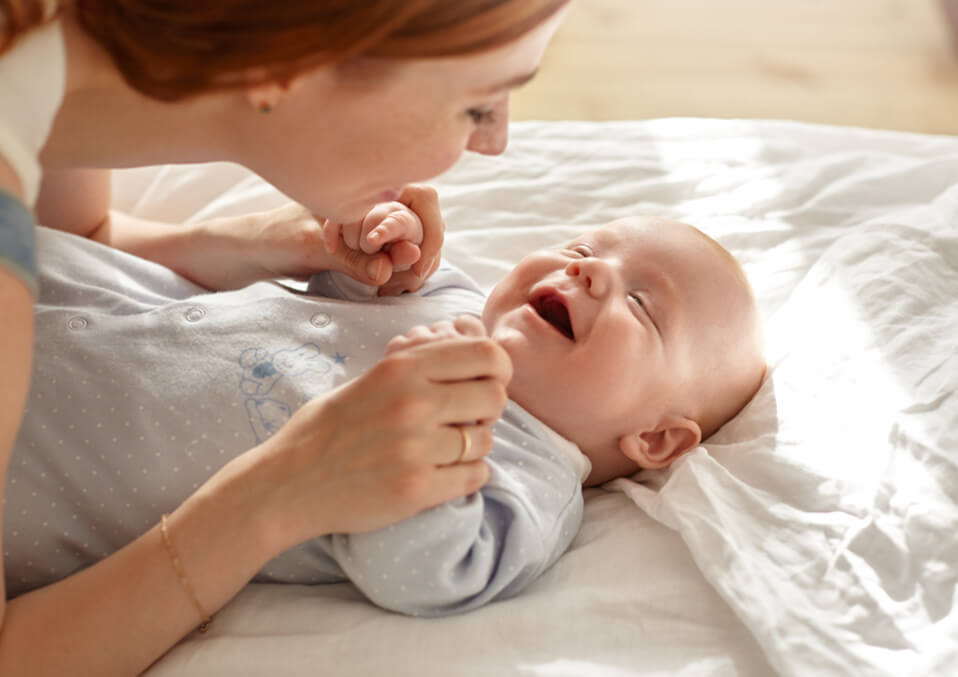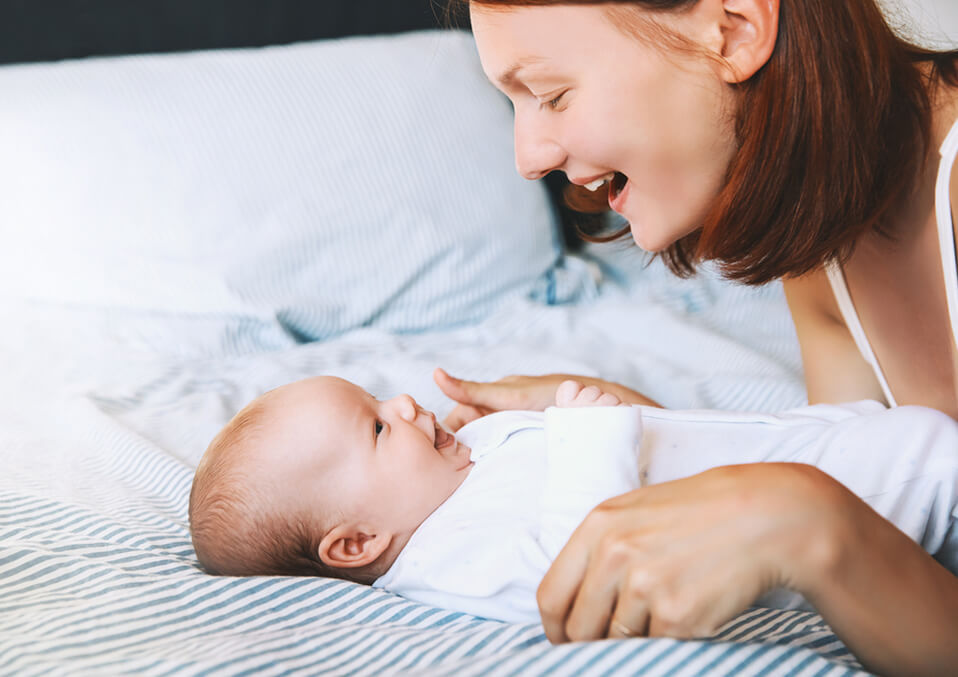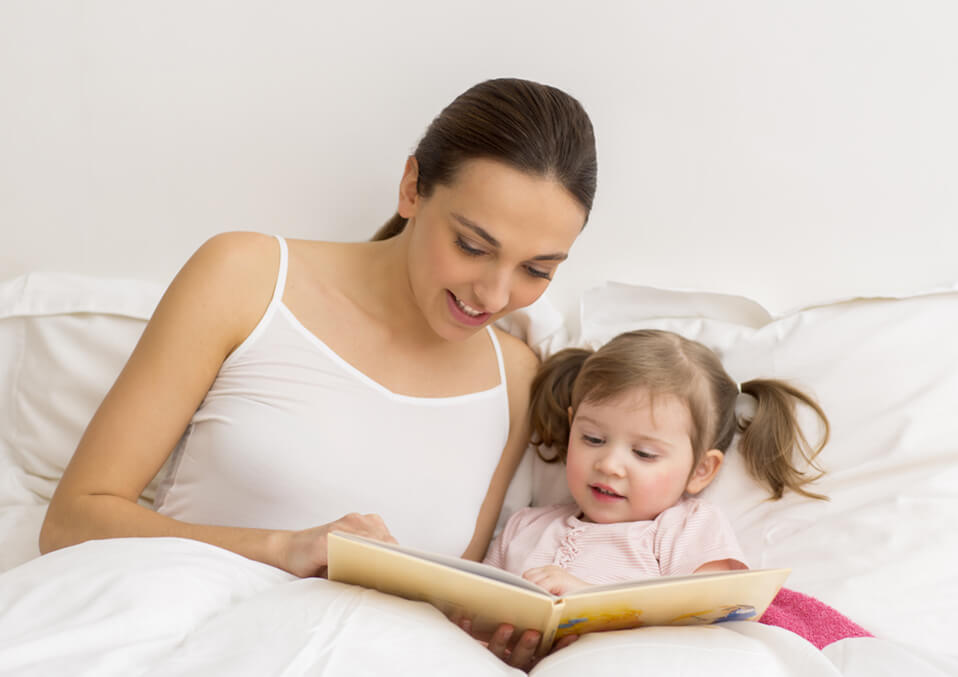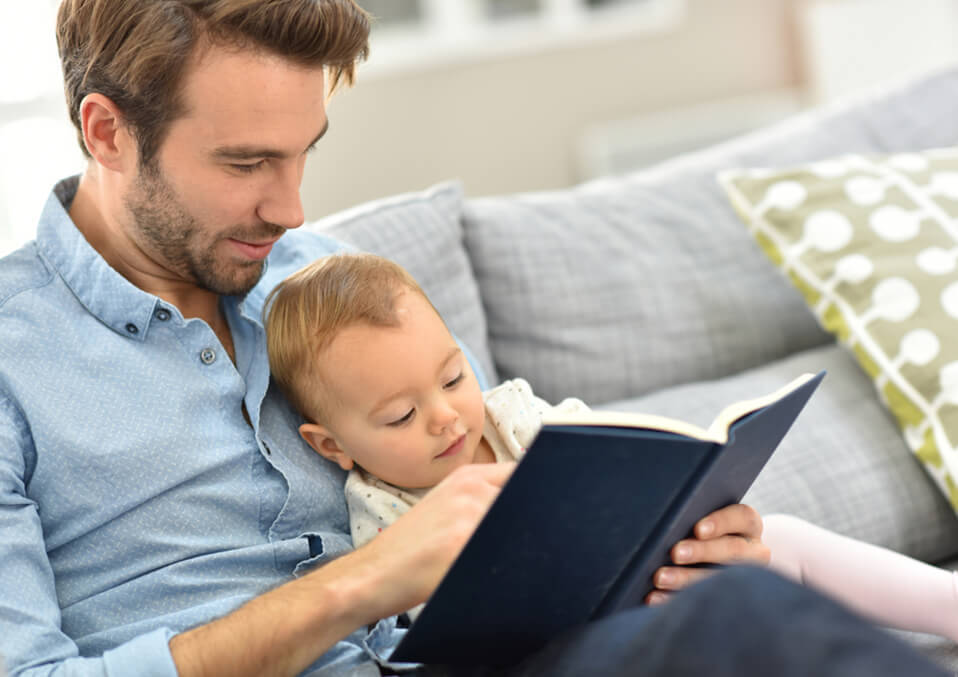
after birth, the baby tends to have his first word which is crying because, through this act, they can be able to deliver the message that they are hungry, irritated, frustrated, etc. Crying is their first language where guardians have the ability to interpret it. It is important to focus on the communication skills of your baby because it tends to develop more interpersonal skills and it prepares your child to develop his reading and writing skills at an early age.
You need to guide your baby so that they’ll be more comfortable and confident to speak up. It is also important to have knowledge about the developmental phases that you need to expect so that you can compare it with your baby’s development. In this article, we’ll know more about how the baby utter words through baby talking and ways how to encourage them to baby talk.
When do you hear the baby’s first words?

As early as 3 months, you can hear your baby cooing like trying to imitate what you are saying. The first 3 years of the baby’s milestone is where his brain and cognition is developing. The baby talk is a skill that your baby has because this is a starting point that sooner you’ll be able to understand what they are saying. This is a critical milestone for a baby, you would know that there is something wrong with their condition if they won’t baby talk at their first 3 years that is why you need to consult your doctor.
The milestones of baby talk at different months

a. At 3 months
At 3 months, the baby will watch and listen to their mother’s voice. Studies show that babies prefer the voice of women over a man’s voice. Expect that by the end of the 3 months, the baby will begin cooing or make soft murmuring sound.
b. At 6 months
At 6 months, your baby will have the ability to recognize a language and be able to respond to their names. This is the period where they can be able to say random syllable words without meaning such as “da-da” or “ma-ma” that is why parents would perceive that the baby’s first word is daddy or mommy but actually the baby is just babbling. This babbling period goes until 8 months.
c. At 9 months
At 9 months, your baby has the ability to understand cues especially when you are playing. They also begin to utter a wider range of tone of voice and sounds. Some basic words that they can understand are “bye-bye” and “no”.
d. At 12-18 months
At this age, your baby already knows what they are saying. They can already utter simple words and they can already respond to a command. You can now start teaching them the alphabet, numbers or naming things. If you say something, they’ll be able to understand or obey it.
e. At 18 months

At 18 months, your baby will have the ability to say different words and they can be able to say what they want, although the words are not properly uttered, adults will fully understand what they want. This is the stage where they can already count numbers, recite the alphabet and name objects, body parts and people that you point.
e. At 2 years old
Expect your toddler that they can already combine 2 or more words or phrases with meaning. They can say what they want and how they feel. There are still mispronounced words but the words are understandable.
f. At 3 years old
At this stage, your toddler’s vocabulary is a wide range, they can already understand more abstract word ideas such as mine, now, etc. and they can be able to understand and differentiate the meanings of emotions such as happiness, sadness, excitement, etc.
How to encourage your baby to baby talk?

- Talk. You can encourage your baby to talk if you will also talk to them. During their first year, the way they learn how to speak is by listening to you. Make sure that you have a happy tone of voice when you talk to them.
- Read. Reading is a way for you to introduce new vocabulary and it is a great way for you to show them how words are put together. At the baby stage, they’ll enjoy the sound of your voice and at the toddler stage, aside from enjoying your voice, they can somehow understand how the story flows with the pictures.
- Listen. When your baby or toddler talks to you even though they jumble some words, be responsive and show that you are interested in what they’re saying because they’ll be more likely to speak up when someone is listening to them.
- Sing songs or recite rhymes. The repetition of words from baby songs and rhymes is helpful for the baby to pick up some words. They’ll be able to learn language skills just by listening.
Tips to do when your baby starts to baby talk
- When your baby starts to baby talk, the first words that they utter will be synonyms without meanings such as “ba-ba” “da-da” etc. Imitate the words your baby is saying so that he’ll be able to repeat it back or make another syllable sound. Imitating your baby’s words is the best way to respond to them even though you don’t know what they are trying to say.
- Aside from imitating their sound, you can also imitate their gestures.
- You can also communicate with them by means of smiling or mirroring their facial expressions. Also, look at them when they try to baby talk.
When do developmental delays happen?
Your baby has an expected developmental milestone in each day, months or years of their lives. Each baby may not have the same developmental pace but at least their developments are as close to the ideal expected milestone. If you notice that there is a delay, you need to consult your doctor to know the possible reasons, the most common reason why babies have a delay in speech is because of hearing impairment. Early diagnosis of the problem may fix the issue right away.
Read also:
- When Do Babies Start Laughing
- My Baby Doesn’t Look Tike What i Imagined
- Parenting 101: Toddler And Baby Sharing Room Tips


